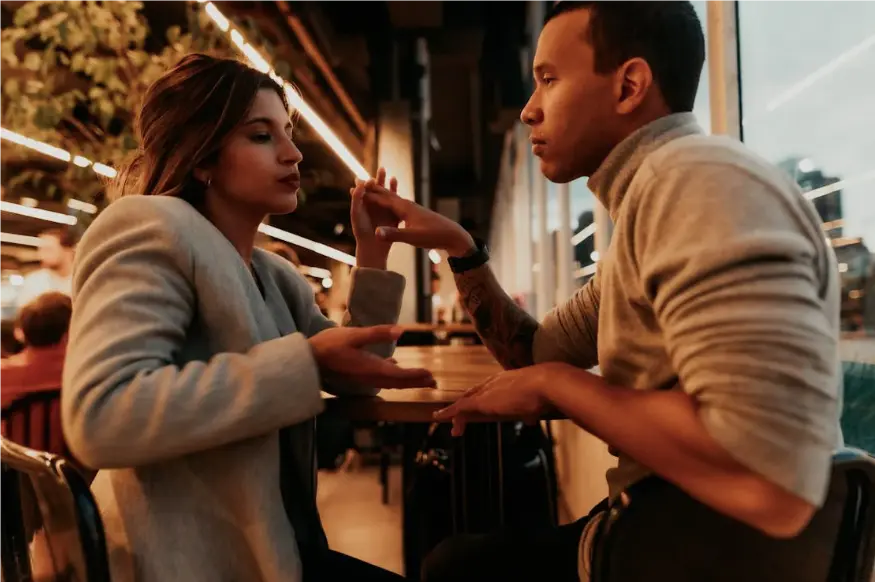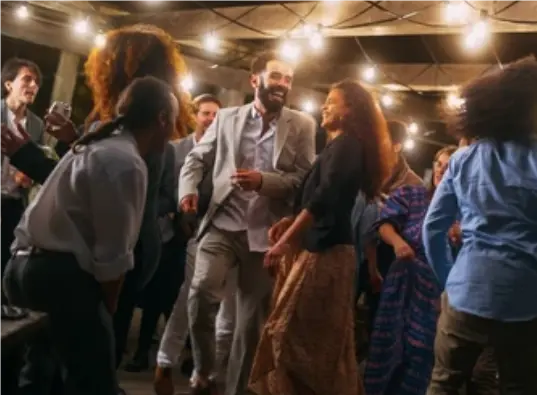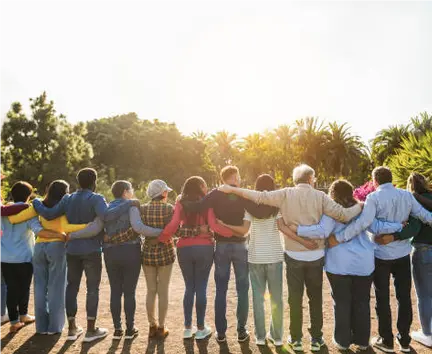 In our beautifully interconnected world, love is increasingly color-blind. Yet, while #interracialcouple photos fill our social media feeds, the real, day-to-day journey of an interracial relationship is often more nuanced than a single image can capture. Dating someone from a different racial or ethnic background isn't just about the visible difference; it's a rewarding, enriching journey into a world of new perspectives, traditions, and histories.
In our beautifully interconnected world, love is increasingly color-blind. Yet, while #interracialcouple photos fill our social media feeds, the real, day-to-day journey of an interracial relationship is often more nuanced than a single image can capture. Dating someone from a different racial or ethnic background isn't just about the visible difference; it's a rewarding, enriching journey into a world of new perspectives, traditions, and histories.
This isn't your typical list of superficial tips. This is a deep dive into building a resilient, respectful, and deeply connected interracial relationship. Let's move beyond the surface and explore how to nurture a love that not only crosses borders but transcends them.
1. The Foundation: Cultivate a Mindset of Curiosity, Not Colorblindness
 A common misconception is that to be progressive, you should "not see color." This is well-intentioned but flawed. When you don't "see" your partner's race, you inadvertently ignore a significant part of their identity, experiences, and heritage.
A common misconception is that to be progressive, you should "not see color." This is well-intentioned but flawed. When you don't "see" your partner's race, you inadvertently ignore a significant part of their identity, experiences, and heritage.
The Novel Approach: Active Cultural Curiosity
- Be a Student of Their World: Don't just wait for cultural touchpoints to arise. Ask thoughtful questions. "What was a holiday tradition you loved as a child?" "What's a dish that tastes like home to you?" "Can you teach me a phrase in your family's language?"
- Acknowledge the Differences: It's okay to acknowledge that you come from different worlds. In fact, it's essential. This acknowledgment is the first step toward genuine understanding and appreciation. The goal isn't to pretend you're the same; it's to celebrate what makes your combined story unique.
For interracial couples, this foundation of curiosity transforms potential cultural friction into opportunities for connection and growth.
2. Master the Art of "Cultural Listening" in Communication
 Communication is the bedrock of any relationship, but in an interracial context, it requires an extra layer of sensitivity. It's not just about what is said, but the cultural and historical context behind it.
Communication is the bedrock of any relationship, but in an interracial context, it requires an extra layer of sensitivity. It's not just about what is said, but the cultural and historical context behind it.
The Novel Approach: Decode the Context
- Understand Indirect vs. Direct Communication: Your partner's cultural background may influence their communication style. Some cultures are more direct, while others value harmony and indirectness. Misinterpreting this can lead to unnecessary conflict. Discuss your communication styles openly.
- Listen to the "Why": When your partner shares an experience of microaggression or racism, your role is not to play devil's advocate or minimize it. Your role is to listen, validate their feelings, and seek to understand the "why" behind their pain. Say, "That sounds incredibly frustrating. Help me understand what that felt like for you."
This approach to communication builds trust and demonstrates that you value your partner's lived experiences as much as your own.
3. Build Your "Couple Culture": A Fusion of Two Worlds
 Your relationship is a new, unique entity. It shouldn't be about one culture assimilating into the other, but about creating a beautiful, third culture that is entirely your own.
Your relationship is a new, unique entity. It shouldn't be about one culture assimilating into the other, but about creating a beautiful, third culture that is entirely your own.
The Novel Approach: Intentional Fusion
- Create New Traditions: Blend your backgrounds to form new rituals. Maybe you celebrate Diwali and Christmas, creating a "Festival of Lights" season all your own. Perhaps your weekly dinners fuse your grandmother's recipes with theirs.
- Build a Shared Media Library: Consume media from each other's cultures together. Watch films, listen to music, and read books that give you a window into the narratives that shaped your partner. This builds a shared frame of reference and deepens empathy.
This intentional creation of a shared culture strengthens your bond and creates a relationship identity that honors both partners equally.
4. Navigate Family & Friends as a United Front
 One of the biggest challenges interracial couples face is external prejudice, sometimes from the people closest to them. How you handle this as a team can make or break your bond.
One of the biggest challenges interracial couples face is external prejudice, sometimes from the people closest to them. How you handle this as a team can make or break your bond.
The Novel Approach: The "We" Shield
- Set Boundaries Together: Decide, as a couple, how you will handle insensitive comments or questions from family or friends. Have a plan. Who will lead the conversation? What is a polite but firm response? A simple, "We don't see it that way, and that comment isn't helpful," can be powerful.
- Present a United Front: Never let others, even well-meaning ones, drive a wedge between you. Your loyalty is to each other first. Support each other privately after a difficult family gathering and debrief on what felt good and what didn't.
This united approach transforms potential relationship stressors into opportunities to strengthen your partnership.
5. Embrace the Role of Advocate and Ally
 Being in an interracial relationship means you have a front-row seat to experiences of racism and bias that you may not have faced personally. Your role as an ally is crucial.
Being in an interracial relationship means you have a front-row seat to experiences of racism and bias that you may not have faced personally. Your role as an ally is crucial.
The Novel Approach: Proactive Allyship
- Educate Yourself: Don't rely on your partner to be your sole source of education on systemic racism or their cultural history. Read books, follow activists, and do the work yourself. This shows initiative and deep respect.
- Speak Up, Step Back: In public spaces, be ready to speak up against microaggressions directed at your partner. However, know when to step back and let your partner take the lead in telling their own story. Your role is to support, not to speak for them.
This balanced approach to allyship demonstrates genuine commitment to your partner's wellbeing beyond the confines of your relationship.
Do: Create a Cultural Recipe Book
Compile romantic recipes from both cultures and cook a fusion meal together regularly.
Don't: Assume Your Partner Wants Traditional Celebrations
Communicate about which traditions are meaningful and which they'd prefer to adapt or leave behind.
Do: Learn Love Phrases in Each Other's Languages
Exchange love notes that include phrases in both languages, showing respect for each other's heritage.
Don't: Appropriate Cultural Elements Superficially
Take time to understand the meaning behind traditions rather than using them as decorative elements.
Conclusion: The Reward is a Wider World
Interracial dating, when approached with intention, respect, and boundless curiosity, is one of the most profound educational and emotional journeys you can undertake. It challenges your assumptions, expands your worldview, and teaches you about love in its most resilient and generous form.
It's not about ignoring the differences but about embracing them so fully that they become the very threads that strengthen the fabric of your relationship. The ultimate tip is this: see your relationship not as a challenge to overcome, but as an adventure to be shared.
Conversation Starter for Couples
"What's one tradition from your culture around love and relationships that you'd like to incorporate into our celebrations? What meaning does it hold for you?"
FAQ Section
Common Questions About Interracial Dating
Q1: How do I handle people staring at us in public?
A: This is a common experience. The key is to develop an internal "couple bubble." Acknowledge it to each other—a simple, "We're getting looks again, huh?"—can diffuse the tension. Then, redirect your focus back to each other. Your connection is what matters, not the gaze of strangers.
Q2: My family makes outdated, "well-meaning" comments. How do I address this without causing a fight?
A: Use "I" statements and focus on the future. For example, "I know you mean well, but when you say [comment], it makes me feel uncomfortable. In the future, we'd love it if you could just see us as [Partner's Name] and I, a happy couple." This frames it as a request for respect rather than an accusation.
Q3: Is it wrong to be initially attracted to someone because of their race?
A: Attraction is complex. While finding certain features appealing isn't inherently wrong, it's crucial to distinguish between fetishization and appreciation. Fetishization reduces a person to a stereotype based on their race. Appreciation acknowledges their beauty while loving and respecting them as a whole, complex individual. Always ensure your attraction is to the person, not just the idea of their race.
If you're looking for a community of interracial couples or want to connect with people who understand the unique joys and challenges of intercultural relationships, consider joining our Interracial Dating Forum where we share experiences and celebration ideas year-round.



